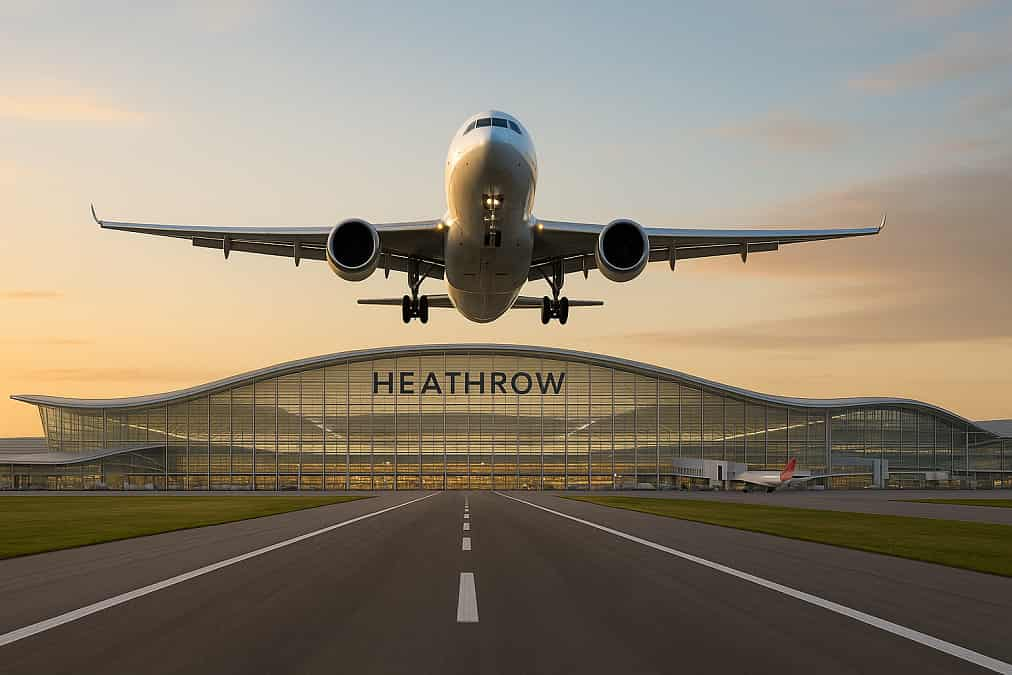In a significant development for the nation’s infrastructure and economic outlook, ministers have formally endorsed Heathrow Airport’s £49 billion expansion programme, paving the way for a long-debated third runway at the UK’s busiest aviation hub. The decision marks a defining moment for national connectivity and long-term economic resilience, with particular relevance to working people across construction, logistics, aviation and the wider supply chain.
The proposal, described by the government as “resilient and efficient,” outlines a major transformation of Heathrow’s capacity. Under the plan, daily flight movements could increase by 57 per cent to more than 2,000 per day, while annual passenger numbers are projected to rise by 79 per cent to 150 million. Ministers insist the new runway will enable “quicker, quieter and greener flights” by 2035, positioning the UK competitively in a global transport landscape that is evolving rapidly.
Transport secretary Heidi Alexander emphasised Heathrow’s strategic value, noting that it supports trade, tourism and hundreds of thousands of jobs nationwide. For workers across the UK, she said the renewed commitment to a third runway set “the direction for the remainder of our work to get the policy framework in place for airport expansion,” allowing parliament to reach a final decision this term. Her message was clear: unlocking Heathrow’s future capacity is key to broader economic health and national prosperity.
The financial scale of the project is substantial. The new 3,500-metre runway accounts for £21 billion of the total cost, including £1.5 billion required to divert the M25 motorway. Additional terminal works and infrastructure upgrades will contribute a further £12 billion. However, this has prompted unease within the aviation sector, with several airlines warning that the cost risks being passed on to passengers who already face some of the highest airport charges in the world.
Alternative proposals have also played a role in shaping debate. British Airways, Virgin Atlantic and others previously supported Surinder Arora’s £25 billion “Heathrow West” plan, which promised a shorter runway without the disruptive and costly diversion of the M25. While the government argues that Heathrow’s official proposal remains the “most deliverable option,” it has left open the possibility of a different promoter taking the scheme forward. Arora welcomed the decision to allow competition in the delivery process, saying a transparent selection framework is vital to protect the interests of consumers and maintain cost discipline.
From an economic standpoint, the project’s potential impact is considerable. Chancellor Rachel Reeves described the approval as decisive action after years of hesitation, forecasting more than 100,000 new jobs, increased international investment and greater certainty for businesses. The expansion, she said, could “open the door to new growth and opportunity,” reinforcing the UK’s status as a global transport and commercial hub.
Yet concerns remain. Environmental groups warn that the project poses significant ecological and social challenges, including the demolition of villages, disruption to communities and a major increase in carbon emissions. Paul McGuinness of the No 3rd Runway Coalition described the move as “an act of national self-harm,” citing the displacement of up to 15,000 residents and long-term construction disruption, including works above one of the busiest sections of the M25.
Officials maintain that the updated Airports National Policy Statement, combined with a forthcoming Development Consent Order, will ensure all environmental and community issues are carefully considered. Ministers aim to see construction commence within this parliamentary term, potentially before summer 2030.
For workers across construction, infrastructure, engineering and operational services, this decision signals a decade of employment opportunity and economic momentum. As always, The Workers Union will continue to offer news developments with the interests of UK workers at the heart of our analysis, ensuring that opportunities are maximised, standards upheld and communities supported throughout the process.




